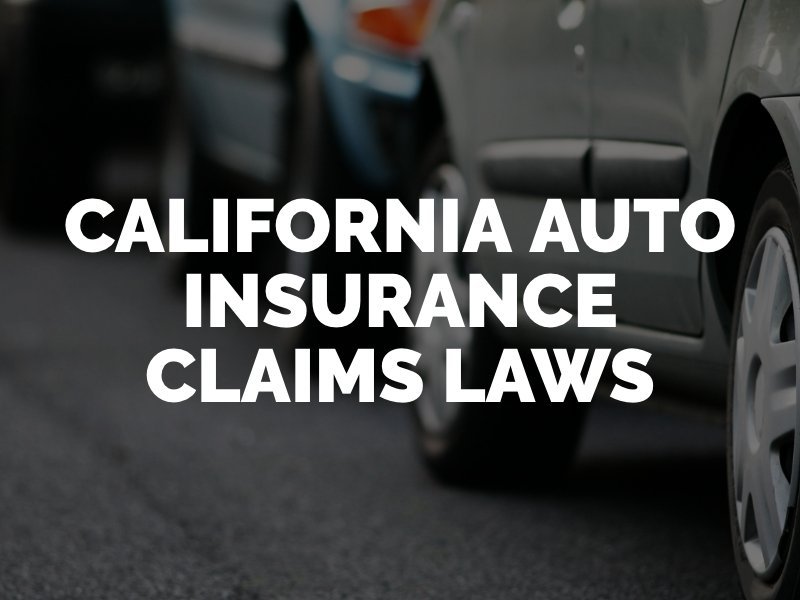What Are the Auto Insurance Claims Laws in California?
After getting into a car accident in California, you must file an insurance claim to recover the costs of damages such as your medical bills and property repairs. Navigating the insurance claims process takes an understanding of the state’s related laws. If you need assistance with your car accident claim, including negotiating a fair settlement value, hire a qualified car accident attorney in Los Angeles.

Required Auto Insurance in California
You cannot file a claim after an at-fault accident if you do not have the necessary insurance to cover your damages. Anyone you injured in the crash will also not be able to file a claim with your insurance provider, but may instead file a lawsuit against you personally to force you to pay out of pocket. It is against the law in California to drive without the required amounts of insurance.
- $15,000 for bodily injuries or deaths per person
- $30,000 for bodily injuries or deaths per accident
- $5,000 for property damage repairs per accident
Any driver may add other types of insurance on top of these minimum amounts for better coverage. Collision insurance, for example, would cover your damages on top of someone else’s in an at-fault accident. You need car insurance to register a motor vehicle in the state of California. Not having proof of financial responsibility in the form of insurance can lead to penalties such as hundreds of dollars in fines, registration suspension, vehicle impoundment and driver’s license suspension.
Filing a Claim: Who Is at Fault?
In California, car accident victims will seek financial recovery from the at-fault driver’s insurance company during a third-party claim. California is a tort-based car insurance state, meaning the party most responsible for causing the wreck will have to pay for damages. Before you can file an auto insurance claim, however, you must determine who was at fault for your collision.
- The other driver. The other driver may have caused the crash by driving distracted, recklessly, carelessly or negligently.
- A company. If the at-fault driver was working at the time of the crash (i.e. UPS, USPS, FedEx, Uber, Lyft, taxi, commercial truck, etc.), the company may be vicariously liable.
- The city or property owner. The owner of the road or property – including the government – could be responsible if a defect such as a pothole caused the car accident.
- The vehicle part manufacturer. If your crash or injuries stemmed from a defective vehicle part, the manufacturer of the car or part may be responsible.
If the other driver does not have enough car insurance to cover the full extent of your losses, you may need to supplement your third-party claim with a first-party claim. The at-fault driver’s insurer will pay your damages up to the policy’s maximum, then your company will cover the rest. Your insurance provider may then pursue a lawsuit against the at-fault party to recover what it spent on the claim. Your insurance premiums should not increase if you did not cause the crash.
What About Crashes With Uninsured Drivers?
Car accidents with uninsured drivers in California require a different claims process than typical collisions. Since you cannot bring a claim with the at-fault driver’s insurance company, you must turn elsewhere for coverage. Your first option is your own insurance provider. If you purchased uninsured/underinsured motorist insurance, this will cover your damages up to the policy’s maximum. File a first-party insurance claim if you have the correct type of insurance. If you do not have this insurance, you may be able to file a lawsuit instead.
A personal injury lawsuit against the uninsured driver may hold him or her personally responsible for paying for your damages. However, many drivers that unlawfully drive uninsured do not have the money to pay settlements or verdicts. Hire a lawyer to search for other parties to hold responsible instead. Some cases involve multiple at-fault parties. A third party such as the driver’s employer or the city could bear partial liability for your crash. If so, that party may have adequate insurance to cover your losses. Work with an attorney after any car accident in California for assistance getting the most out of your insurance claim.
